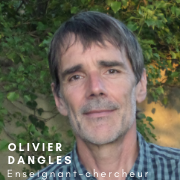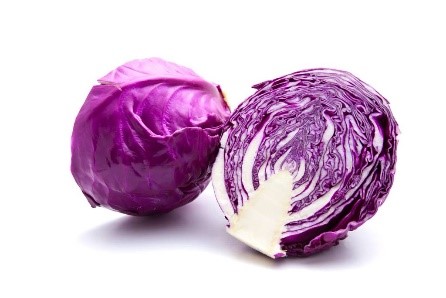[Portraits] Olivier Dangles, researcher at UMR 408 SQPOV

1- What is your research about?
Mainly on phenols of plant origin (polyphenols) for their various structures and reactivity in plants, food and in humans after consumption of fruit and vegetables.
Two themes are of particular interest to me:
1) the physicochemical mechanisms of their antioxidant action in the digestive tract which may contribute to protection against cardiovascular disease,
2) their role in the expression of natural colours ranging from red to blue.
2- What is your scientific news?
Strong industrial partnership (USA, France) on the theme of food colourings, the challenge being to replace synthetic (artificial) colourings by colourings naturally present in edible plants. Beware: these pigments, extracted from their natural environment, are fragile. The idea is to draw inspiration from the mechanisms put in place by plants to stabilise them. Bonus: these same stabilisation mechanisms also allow for colour diversification.
3- Why did you choose to work in academic research?
Because, as the Prince says to the rose in "Peau d'âne", we live in "a world where there is so much to do, to discover, to understand". And also because, at the end of my thesis, my girlfriend at the time convinced me that it would be more fun than going to teach in the preparatory classes, as I was being offered. She was right. And finally because, even if everything is not rosy (limited means, strong competition, scandalously low starting salaries, etc.), you still enjoy a great deal of freedom.
4- What advice would you give to students who want to do research?
To give oneself the means, to fill oneself up (patient, methodical and persistent personal work, meetings and exchanges beyond borders, scientific culture, history of science... everything is good), to favour research at the interface of several disciplines. Science is at the heart of the challenges of today and tomorrow (environment, energy, food, health, etc.). The scientific spirit is a weapon against demagogues, gurus and fanatics. Do science!
5- Which object or image from your research best illustrates you?

Something innocuous, unassuming, banal, but which holds hidden treasures, a red cabbage for example.
Updated on 26 March 2023